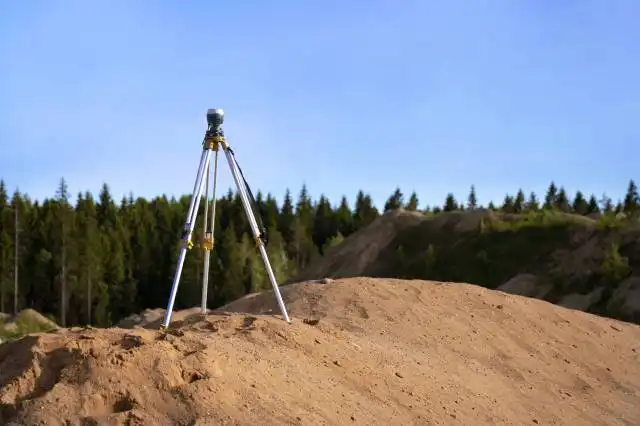Start a CNC Machining Business
Orchestrating the Symphony of Precision: Entering the CNC Machining Business World
| Updated


CNC MACHINING BUSINESS
Step into a world where precision meets perfection every tick of the clock — welcome to the CNC machining business! This dynamic venture involves the use of pre-programmed software to control the movements of factory tools and machinery. It's like conducting an orchestra but with metals and tools, crafting exact renditions of the digital blueprint provided. This business isn't just about creating parts, it's about bringing an artist's and engineer's vision to life in exact dimensions and detail!
Jump to Business Plan
RELATED BUSINESS IDEAS
Browse ALL Construction & Real Estate Business Ideas
Discover Your Perfect Domain
Unlock the door to your online success with our hand-picked selection of premium domain names. Whether you're starting a new venture or rebranding an existing one, the right domain can set the tone for your digital presence. Browse through our curated list, each with its unique potential to enhance your brand's visibility and credibility.
CNC MACHINING MINI BUSINESS PLAN
This a quick reality check to help you identify the strengths and weaknesses of your business concept before you dive in.
CNC Machining Business Analysis:
The projected profit margins and expected earnings for the CNC machining business take into account the cost of raw materials, labor, overhead, processing costs, marketing, etc. That said, realize that actual figures will depend on various factors including business model, competitive landscape, and the specific costs in your region.
Expected Percent Margins:
- Gross Margin: 25-35%
- Net Margin: 6-8%
Earnings Expectations:
- Daily Earnings: $500 - $1,000
- Weekly Earnings: $2,500 - $5,000
- Monthly Earnings: $10,000 - $20,000
- Annual Earnings: $120,000 - $240,000
Actions To Achieve Those Numbers:
Equipment and Raw Materials:
- Start-Up Investment: Consider securing at least $100,000-$200,000 to invest in top-notch CNC machines, software and raw materials.
- Maintain Equipment: Regular maintenance to ensure machines are always in working condition.
Skilled Labor:
- Hiring: You’ll need to hire skilled machinists whose salary range will be a major factor in your operating costs.
- Training: Regular training and development to ensure employees are up-to-date with the latest CNC machining techniques.
Marketing and Customer Acquisition:
- Industry Targeting: Aim at securing contracts from industries heavily reliant on precision parts, such as automotive, aerospace, and defense.
- Digital Marketing: Invest in a professional website and use SEO/SEM strategies to attract online traffic.
Cost Control:
- Energy Efficiency: Utilize energy-efficient machines and practices to reduce utility costs.
- Optimize Operations: Enhance production process for maximum output with minimal waste.
Business Operations:
- Quality Control: Invest in quality control measures to ensure the end product meets customer specifications.
- Client Relationships: Build long-term relationships with clients for repeat business and referrals.
The above estimates are generalized and actual results may vary. Always conduct your own detailed financial analysis and get professional advice before making business decisions.
NOT WHAT YOU HAD IN MIND? Here are more ideas



Browse ALL Construction & Real Estate Business Ideas
Grab Your Business Website Name
Before you get caught up in the whirlwind of setting up your business, invest in a domain name. It's a small but significant step that lays the foundation for your brand and makes it easier for customers to find and trust you. Just like you wouldn't build a house without securing the land first, don't build a business without securing your domain name.
"Why? Can't that wait?" Here's why it shouldn't
Step 1: Determine if CNC Machining Business is Right Endeavor
Breakdown of Startup Expenses
Starting a CNC machining business requires a significant investment in equipment, such as CNC machines, cutting tools, and other necessary tools. Additionally, you will need to purchase a space to house the equipment, such as a warehouse or shop. You will also need to consider the cost of insurance, licensing, and other necessary permits. Additionally, you will need to factor in the cost of hiring and training employees, as well as the cost of marketing and advertising. Finally, you will need to consider the cost of any software or other technology that you may need to run the business.
Breakdown of Ongoing Expenses
Once you have established your CNC machining business, you will need to consider the ongoing costs associated with running the business. These costs include the cost of electricity, water, and other utilities. Additionally, you will need to factor in the cost of supplies, such as cutting tools, lubricants, and other materials. You will also need to consider the cost of labor, including wages for employees and contractors. Additionally, you will need to factor in the cost of marketing and advertising, as well as the cost of any software or other technology that you may need to run the business.
Examples of Ways to Make Money
There are a variety of ways to make money with a CNC machining business. The most common way is to provide machining services to other businesses, such as manufacturers, automotive companies, and aerospace companies. Additionally, you can offer custom machining services to individuals, such as hobbyists and artists. You can also offer machining services to other CNC machining businesses, such as prototyping and production services. Finally, you can offer consulting services to other businesses, such as providing advice on how to use CNC machines and other machining tools.
Step 2: Name the Business
When naming your business, it is important to choose a name that is memorable, unique, and reflects the services you offer. It should also be easy to pronounce and spell. Additionally, it is important to make sure that the name is not already in use by another business. You can check with your local government to make sure that the name you have chosen is not already in use.
You may also want to consider using a name that is related to the services you offer. For example, if you are starting a CNC machining business, you may want to include words such as “machining” or “CNC” in the name. This will help customers to quickly identify the services you offer.
It is also important to consider the potential for growth when choosing a business name. If you plan to expand your services in the future, you may want to choose a name that is not too specific to the services you are currently offering.
Finally, you may want to consider the cost of registering the business name. Depending on the state you are in, there may be fees associated with registering the name. Additionally, you may need to register the name with the US Patent and Trademark Office if you plan to use the name for marketing purposes.
Step 3: Research the Market
Analyze the Competition
It is important to research the competition in the CNC machining business to determine what services they offer, what their pricing is, and what their reputation is. This will help you determine what services you can offer that will differentiate you from the competition. Additionally, you should research the types of materials and machines that your competitors use to determine if you can offer a better product or service.
Identify Potential Customers
Identifying potential customers is a key step in starting a CNC machining business. Start by researching the types of businesses that may need CNC machining services. These can include manufacturing companies, aerospace companies, automotive companies, and medical device companies. Additionally, you should research the types of products that these companies produce and the types of materials they use. This will help you determine the types of services that you can offer and the types of materials you will need to purchase. You should also research the types of CNC machines that these companies use to determine if you can offer a better product or service.
Step 4: Develop a Business Plan
Outline Objectives
When developing a business plan, it is important to outline the objectives of the business. This should include a mission statement, a list of services offered, and a description of the target market. Additionally, it should include a timeline for when the business will be operational, a list of any necessary permits or licenses, and a list of any necessary equipment.
Establish Financial Goals
Establishing financial goals is an important part of any business plan. This should include a breakdown of startup expenses, such as the cost of equipment, office space, and any other necessary expenses. It should also include a breakdown of ongoing expenses, such as rent, utilities, and payroll. Additionally, it should include a plan for how the business will generate revenue and a timeline for when the business will become profitable.
Create a Marketing Plan
Creating a marketing plan is essential for any business. This should include a description of the target market, a list of marketing strategies, and a budget for marketing activities. Additionally, it should include a plan for how the business will reach potential customers, such as through social media, advertising, or word-of-mouth. Finally, it should include a plan for tracking the effectiveness of the marketing activities and making adjustments as needed.
Step 5: Secure Funding
Securing funding for a CNC machining business can be a challenge, but there are a variety of sources available. The most common sources of funding include traditional bank loans, venture capital, angel investors, and crowdfunding. Bank loans are the most common source of funding, but they usually require a good credit score and a solid business plan. Venture capital and angel investors are more difficult to secure, but they can provide a significant amount of capital. Crowdfunding is also an option, but it requires a lot of work to create a successful campaign.
Tips for Securing Funding
When seeking funding for a CNC machining business, it is important to have a well-developed business plan that outlines the goals and objectives of the business. It is also important to research potential investors and understand their investment criteria. Additionally, it is important to be prepared to answer questions about the business and its potential for success. Finally, it is important to be realistic about the amount of funding that is needed and to be prepared to negotiate terms with potential investors.
Step 6: Obtain Licenses and Permits
In order to start a CNC machining business, you will need to obtain the necessary licenses and permits from your local and state government. Depending on the state, you may need to obtain a business license, sales tax permit, and other permits. You will also need to register your business with the state and obtain an employer identification number (EIN). Additionally, you may need to obtain a zoning permit to operate your business in a certain area. It is important to research the local and state requirements for starting a business in your area.
Federal Requirements
In addition to local and state requirements, you may need to obtain certain federal permits and licenses. This is especially true if you plan to manufacture products or sell products across state lines. You may need to obtain a federal trademark or copyright for your business name and logo. Additionally, you may need to obtain a federal tax ID number and register with the IRS. It is important to research the federal requirements for starting a business in your area.
Professional Licenses
Depending on your state, you may need to obtain certain professional licenses in order to operate a CNC machining business. This is especially true if you plan to offer services to the public. You may need to obtain a professional license from the state in order to operate your business. Additionally, you may need to obtain a license from the local municipality in order to operate your business. It is important to research the professional requirements for starting a business in your area.
Insurance Requirements
In order to protect your business and your customers, you will need to obtain the necessary insurance coverage. This includes general liability insurance, workers’ compensation insurance, and property insurance. Additionally, you may need to obtain product liability insurance if you plan to manufacture products. It is important to research the insurance requirements for starting a business in your area.
Step 7: Purchase Equipment
When starting a CNC machining business, it is important to understand the types of equipment needed to get the business up and running. The most common types of equipment used in CNC machining are CNC lathes, CNC mills, and CNC routers. CNC lathes are used for turning and drilling operations, CNC mills are used for milling operations, and CNC routers are used for cutting and routing operations. Depending on the type of work that the business will be doing, different types of equipment may be needed.
Cost of Equipment
The cost of the equipment needed for a CNC machining business can vary greatly depending on the type of equipment and the quality of the equipment. CNC lathes can range from a few thousand dollars to tens of thousands of dollars. CNC mills can range from a few thousand dollars to several hundred thousand dollars. CNC routers can range from a few hundred dollars to several thousand dollars. It is important to research the cost of the equipment needed and make sure that the cost is within the budget of the business.
Sources of Equipment
When purchasing equipment for a CNC machining business, there are several sources to consider. New equipment can be purchased from a variety of manufacturers, such as Haas, Mazak, and Fadal. Used equipment can also be purchased from a variety of sources, such as online auctions, classified ads, and used equipment dealers. It is important to research the different sources of equipment to find the best deal.
Maintenance of Equipment
Once the equipment is purchased, it is important to maintain the equipment in order to keep it running smoothly and efficiently. This includes regular maintenance such as lubrication, cleaning, and inspection. It is also important to keep spare parts on hand in case of any breakdowns or repairs that may be needed. It is important to research the maintenance requirements for the specific type of equipment that is being used in order to keep it in top condition.
Step 8: Hire Employees
When hiring employees for a CNC machining business, it is important to consider the qualifications needed for the job. Depending on the size of the business, the qualifications may vary. For example, a larger business may require employees to have a degree in engineering or a related field. Additionally, experience in CNC machining is a must. It is also important to consider the personality of the potential employee. A good fit for the team is essential for a successful business.
Finding Employees
Finding qualified employees can be a challenge. One way to find employees is to post job openings on job boards and social media. Additionally, networking with other businesses in the industry can help to find potential employees. It is also important to consider word of mouth. Ask current employees if they know anyone who may be interested in the job.
Training Employees
Once employees are hired, it is important to provide them with the necessary training. This includes training on the specific CNC machines that are used in the business. Additionally, it is important to provide employees with safety training. This includes training on how to properly use the machines and how to stay safe while working.
Benefits
It is important to offer employees benefits such as health insurance, vacation time, and other incentives. This will help to attract and retain employees. Additionally, offering competitive salaries is important for attracting and retaining employees. This will help to ensure that the business has a team of qualified and motivated employees.
Step 9: Market the Business
Advertising is an important part of any business, and CNC machining is no different. To get the word out about your business, you can use a variety of strategies. This includes creating a website, using social media, and running ads in local newspapers. You can also use word-of-mouth marketing to spread the word about your business. Additionally, you can attend trade shows and other events to showcase your services.
Networking
Networking is another important part of marketing your business. You can join local business groups or associations to meet potential customers and partners. You can also attend industry events and conferences to meet other professionals in the field. Additionally, you can use online networking platforms to connect with potential customers and partners.
Pricing Strategies
When it comes to pricing your services, you need to consider a few things. First, you need to determine the cost of materials and labor. You also need to consider the competition and what they are charging. Additionally, you need to consider the quality of your services and the value you are providing. Finally, you need to consider the demand for your services and the potential profit you can make.
Customer Service
Finally, customer service is an important part of any business. You need to make sure that you are providing excellent customer service to your clients. This includes responding to inquiries quickly, providing accurate estimates, and delivering services on time. Additionally, you should strive to build relationships with your customers and provide them with the best possible experience.
EXPLORE MORE CATEGORIES
Browse ALL Business Idea Categories
TAKE THE NEXT STEPS









